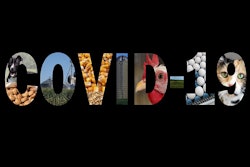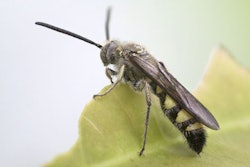
The coronavirus SARS-CoV-2, which causes COVID-19, has infected and caused the deaths of far more humans than other animals. However, pets, livestock and wildlife have proven susceptible, including eight big cats at the St. Louis Zoo. Since the onset of the pandemic, the World Organization for Animal Health (OIE) has received reports of the SARS-CoV-2 virus in twelve different animal species (cats, dogs, mink, otter, pet ferrets, lions, tigers, pumas, snow leopards, gorillas, white-tailed deer and amur leopard), as of its latest situation report, published in late September. Those cases occurred in thirty countries in the Americas, Africa, Asia and Europe. A total of 584 outbreaks of the coronavirus in non-human animals have been recorded, compared to more than 250 million cases of COVID-19 in people.
Worldwide, 102 outbreaks of the coronavirus have occurred in cats as of September 30. Sixty-seven cases were reported in the Americas. Eleven occurred in Asia and 24 in Europe. For dogs, the global figure stood at 92 with 69 cases in the Americas, 16 in Asia and seven in Europe. The most heavily affected animal other than humans has been mink. In Europe, 360 outbreaks of COVID-19 on mink farms led to the culling of millions of animals in November 2020.
COVID-19 virus replicates in cats, transmits cat-to-cat
In April 2020, Petfood Industry reported that scientists at the Harbin Veterinary Research Institute in China directly inoculated domestic cats with the SARS-CoV-2 coronavirus, which causes COVID-19 disease in humans. The scientists conducted similar trials with dogs, pigs, chickens, ferrets and ducks. The virus could replicate in ferrets and cats, but none of the other animals. Two out of six cats in the experiment seem to have caught the virus after exposure to an inoculated cat.
“These results indicate that SARS-CoV-2 can replicate efficiently in cats, with younger cats being more permissive and, perhaps more importantly, the virus can transmit between cats via respiratory droplets…” wrote the researchers in a preprint publication on bioRxiv. “Surveillance for SARS-CoV-2 in cats should be considered as an adjunct to elimination of COVID-19 in humans.”
Some of the infected cats had “massive lesions in the nasal and tracheal mucosa epitheliums and lungs.”
However, the experimental conditions did not replicate those found in the home of a pet owner infected with the virus. The experiment involved ten juvenile cats and eight subadults under controlled conditions. The publication is awaiting peer review. Health officials have not documented any cases of cats, ferrets or other pets directly transmitting the virus to humans.
Experiment on COVID-10 coronavirus in cats
In the experiment, the scientists inoculated four juvenile cats (70 days to three months old) and two subadult (six to nine months old) cats with 105 plaque-forming units (pfu), a virology measurement, of a variety of SARS-CoV-2 isolated from Wuhan, China. Two were euthanized after three days. The rest on day six.
The scientists also inoculated six other similarly aged cats with the same level and variety of the virus. The researchers placed uninfected cats in cages connected to the infected cats, forming pairs of uninfected and inoculated felines. Fecal samples and dissection after euthanizing the cats revealed the presence of the virus in the inoculated felines and two of the exposed cats.
Pets unlikely to transmit COVID-19 to humans
Although the SARS-CoV-2 coronavirus may be capable replicating in cats and spreading between the felines under laboratory conditions, no evidence suggests that cats play a role in spreading COVID-19 among humans in the real world. The Centers for Disease Control, World Organization for Animal Health (OIE) and World Health Organization have no evidence that pets can be a source of SARS-CoV-2 infection or spread COVID-19 to people.
“There is no evidence that dogs play a role in the spread of this human disease or that they become sick…,” according to the OIE Questions and Answers on the 2019 Coronavirus Disease (COVID-19). “While there is no evidence of a COVID-19 infection spreading from one animal to another, keeping animals that test positive for COVID-19 away from unexposed animals should be considered best practice.”
View our continuing coverage of the coronavirus/COVID-19 pandemic.


















